
Kolonia: Gateway to Micronesian Wonders
Kolonia, the capital of Pohnpei State in the Federated States of Micronesia, is a hidden gem in the Pacific Ocean. This charming city is a blend of rich history, vibrant culture, and breathtaking natural beauty. From ancient ruins to stunning waterfalls, Kolonia offers a unique experience for every traveler. Start your journey by exploring the Nan Madol ruins, often referred to as the 'Venice of the Pacific.' This archaeological site comprises a series of small, man-made islands interconnected by a network of canals. It's a UNESCO World Heritage site and a testament to the engineering prowess of early Micronesians. Nature enthusiasts will be delighted by the lush landscapes surrounding Kolonia. The Kepirohi Waterfall is a must-see, with its cascading waters providing a perfect spot for a refreshing swim. For a more adventurous experience, hike up to the Sokehs Rock, a towering volcanic formation that offers panoramic views of the island and the ocean. Kolonia’s local culture is equally captivating. Visit the Pohnpei Cultural Center to immerse yourself in traditional dances, crafts, and folklore. The local markets are vibrant hubs where you can taste exotic fruits and handmade crafts. Don't miss trying sakau, a traditional drink made from the kava plant, which holds significant cultural importance. Kolonia is also a gateway to exploring the underwater world. The pristine coral reefs around the island are perfect for snorkeling and diving. Witness the vibrant marine life, including colorful fish, sea turtles, and even sharks. The clear waters and diverse ecosystems make it an underwater paradise. Whether you're a history buff, a nature lover, or a cultural enthusiast, Kolonia has something to offer. Its serene environment, friendly locals, and unique attractions make it an unforgettable destination.
Local tips in Kolonia
- Visit Nan Madol early in the morning to avoid the heat and crowds.
- Bring insect repellent; the island's lush environment means plenty of mosquitoes.
- Respect local customs and traditions, especially when visiting cultural sites.
- Hire a local guide for a more enriching experience when exploring historical and natural sites.
- Try the local sakau drink, but be aware it has a strong, earthy taste and sedative effects.
- The best time to visit is during the dry season from December to April for ideal weather.
Kolonia: Gateway to Micronesian Wonders
Kolonia, the capital of Pohnpei State in the Federated States of Micronesia, is a hidden gem in the Pacific Ocean. This charming city is a blend of rich history, vibrant culture, and breathtaking natural beauty. From ancient ruins to stunning waterfalls, Kolonia offers a unique experience for every traveler. Start your journey by exploring the Nan Madol ruins, often referred to as the 'Venice of the Pacific.' This archaeological site comprises a series of small, man-made islands interconnected by a network of canals. It's a UNESCO World Heritage site and a testament to the engineering prowess of early Micronesians. Nature enthusiasts will be delighted by the lush landscapes surrounding Kolonia. The Kepirohi Waterfall is a must-see, with its cascading waters providing a perfect spot for a refreshing swim. For a more adventurous experience, hike up to the Sokehs Rock, a towering volcanic formation that offers panoramic views of the island and the ocean. Kolonia’s local culture is equally captivating. Visit the Pohnpei Cultural Center to immerse yourself in traditional dances, crafts, and folklore. The local markets are vibrant hubs where you can taste exotic fruits and handmade crafts. Don't miss trying sakau, a traditional drink made from the kava plant, which holds significant cultural importance. Kolonia is also a gateway to exploring the underwater world. The pristine coral reefs around the island are perfect for snorkeling and diving. Witness the vibrant marine life, including colorful fish, sea turtles, and even sharks. The clear waters and diverse ecosystems make it an underwater paradise. Whether you're a history buff, a nature lover, or a cultural enthusiast, Kolonia has something to offer. Its serene environment, friendly locals, and unique attractions make it an unforgettable destination.
When is the best time to go to Kolonia?
Iconic landmarks you can’t miss
Nan Madol
Discover Nan Madol, an ancient archaeological marvel in Pohnpei, offering stunning ruins, rich history, and breathtaking natural beauty.
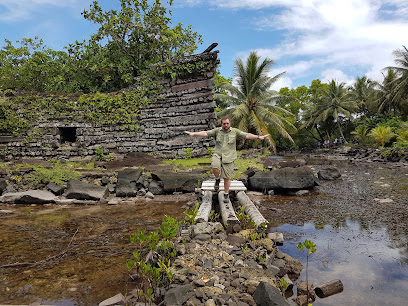
Cliff Hotel & Restaurant
Experience breathtaking ocean views and local culinary delights at Cliff Hotel & Restaurant in Kolonia, the heart of Pohnpei.

Joy Hotel & Restaurant
Discover the flavors of Japan in the heart of Kolonia at Joy Hotel & Restaurant, a quintessential dining experience in Pohnpei.

Kosrae Nautilus Resort
Discover the tranquility and adventure at Kosrae Nautilus Resort, your perfect tropical escape in Kosrae, Micronesia.

Kepirohi Waterfall
Explore the breathtaking Kepirohi Waterfall in Pohnpei, a tranquil paradise perfect for hiking, swimming, and immersing in nature's beauty.
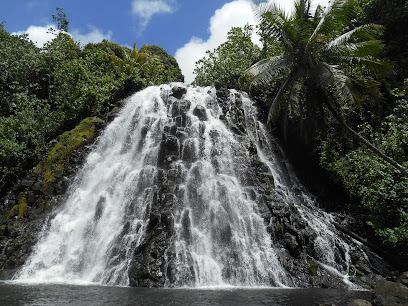
Pohnpei International Airport
Explore the natural beauty and rich culture of Pohnpei, Micronesia, starting from Pohnpei International Airport, your gateway to paradise.
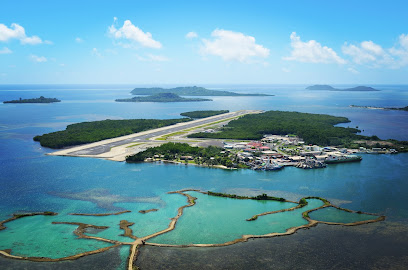
7 Stars Inn & Riverside Restaurant
Experience serene lodging and delicious dining at 7 Stars Inn & Riverside Restaurant, your perfect getaway in Kolonia, Pohnpei Island.

Mangrove Bay Hotel
Experience the tranquility of Mangrove Bay Hotel, your haven in Kolonia, Pohnpei, surrounded by breathtaking nature and rich cultural heritage.

Ocean View Plaza Hotel
Experience the perfect blend of comfort and local culture at Ocean View Plaza Hotel, your serene escape in stunning Pohnpei.
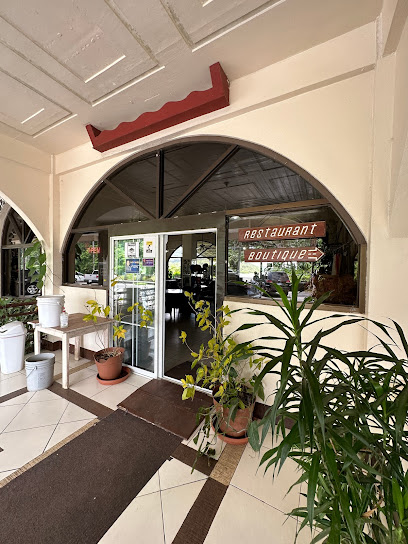
Pohnpei Surf and Dive Club
Explore the underwater wonders of Pohnpei at the premier Pohnpei Surf and Dive Club, offering unforgettable diving and boating experiences.
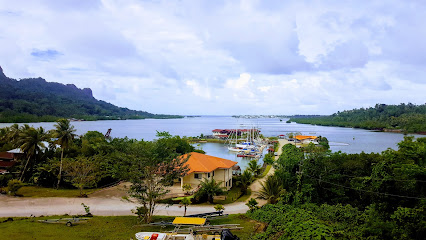
Sea Breeze Hotel
Discover the perfect blend of comfort and local flavor at Sea Breeze Hotel in Kolonia, Pohnpei - your gateway to tropical adventures.
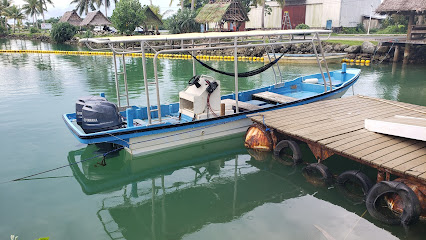
Yvonne's Hotel
Experience the serene beauty of Pohnpei Island at Yvonne's Hotel, your perfect retreat for relaxation and adventure in Micronesia.

Lelu Ruins Historic Park
Discover the ancient Micronesian civilization at Lelu Ruins Historic Park in Kosrae, where history and nature intertwine for an enriching experience.
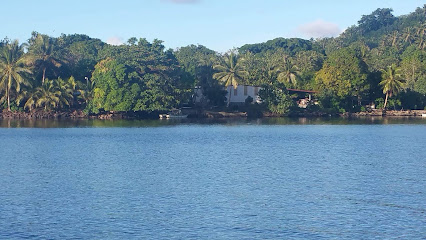
Sokehs Rock
Discover the breathtaking beauty of Sokehs Rock in Pohnpei, a scenic spot offering stunning views and rich cultural experiences.
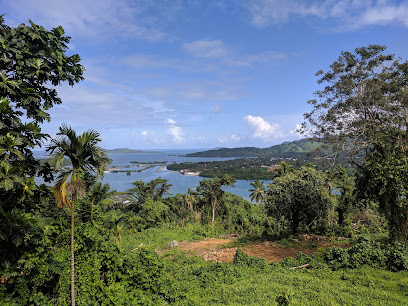
鰻魚池
Discover the enchanting Eel Pools in Pohnpei, where crystal-clear waters and friendly eels create a serene escape in paradise.
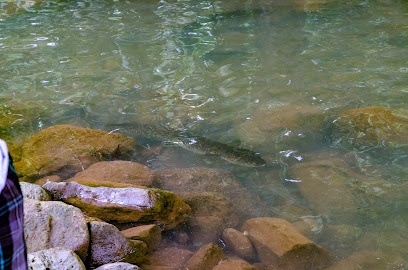
Unmissable attractions to see
Nan Madol
Explore Nan Madol, an archaeological masterpiece in Pohnpei, where ancient ruins meet stunning natural beauty in a unique Pacific setting.
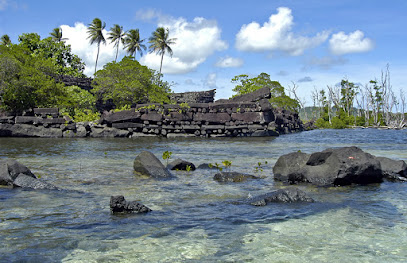
Laidenki Diving and Tours
Explore the vibrant underwater world of Pohnpei with Laidenki Diving and Tours, the premier SCUBA diving experience in Micronesia.
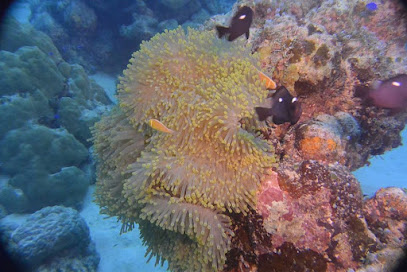
Pahn Sile Waterfall
Explore the natural beauty and tranquility of Pahn Sile Waterfall, a hidden gem in Pohnpei ideal for hiking, swimming, and unwinding in nature.
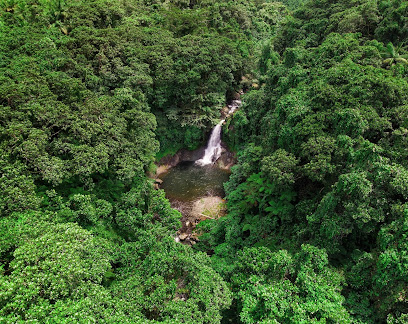
Pahnairlap Waterfall
Embrace the natural beauty of Pahnairlap Waterfall in Pohnpei, where hiking trails lead to mesmerizing views and refreshing swimming spots.
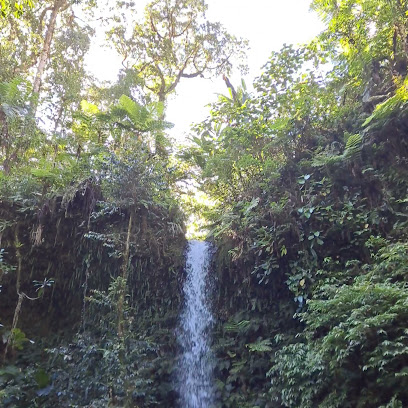
Kokomaru Waterfall
Discover the stunning natural beauty of Kokomaru Waterfall in Pohnpei, a must-visit for nature lovers and adventure seekers alike.
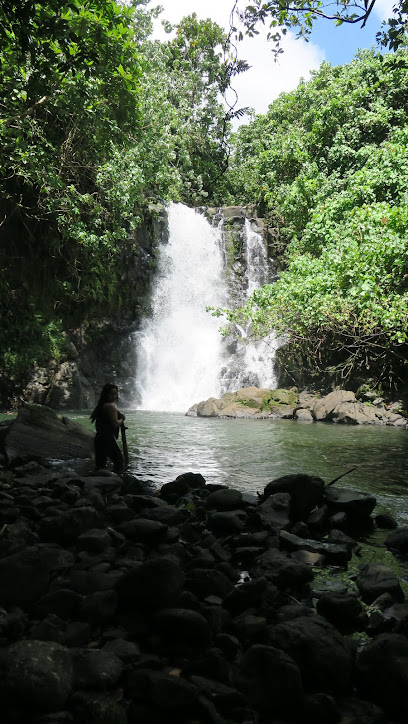
Nan Emp Waterfall
Explore the enchanting Nan Emp Waterfall in Pohnpei - a perfect blend of hiking, swimming, and natural beauty.

Essential places to dine
Denny's Micronesia Mall
Experience classic American comfort food at Denny's Micronesia Mall with an extensive menu and family-friendly atmosphere.
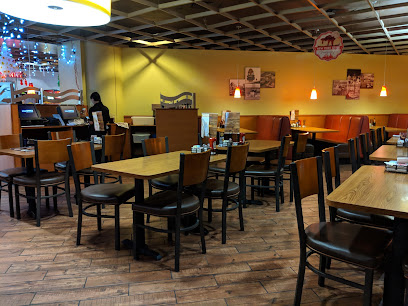
Beachin' Shrimp 3
Savor the freshest seafood delights at Beachin' Shrimp 3 in Guam's Micronesia Mall - a culinary gem for tourists seeking authentic flavors.
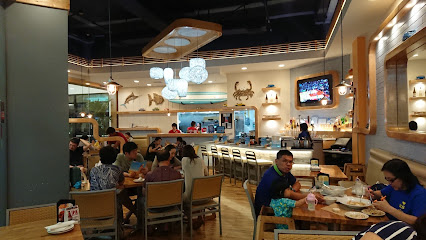
Cliff Hotel & Restaurant
Experience exquisite dining at Cliff Hotel & Restaurant in Kolonia – where Pohnpei's flavors meet stunning ocean views.

Joy Hotel & Restaurant
Discover authentic Japanese flavors at Joy Hotel & Restaurant in Kolonia, Pohnpei—where culinary excellence meets local charm.

Chinastar Hotel & Restaurant
Discover authentic Chinese cuisine and warm hospitality at Chinastar Hotel & Restaurant in Kolonia, Pohnpei – your gateway to local flavors.

Korea Place
Experience the rich flavors of authentic Korean cuisine at Korea Place in Liguan, Guam - a must-visit for food enthusiasts.
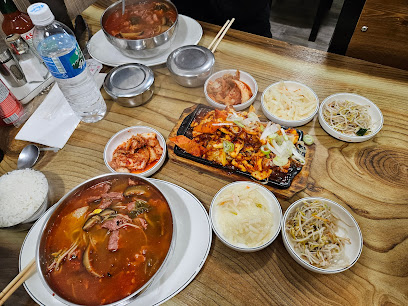
7 Stars Inn & Riverside Restaurant
Experience Pohnpei's unique flavors at 7 Stars Inn & Riverside Restaurant – where comfort meets culinary excellence.

Ocean View Plaza Hotel
Experience tranquility at Ocean View Plaza Hotel on Pohnpei Island – where stunning ocean views meet exceptional hospitality.
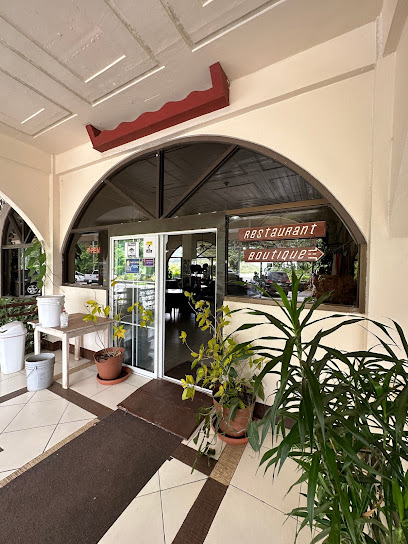
Arnold's
Discover the culinary delights of Pohnpei at Arnold's - where local flavors meet international cuisine in a cozy setting.
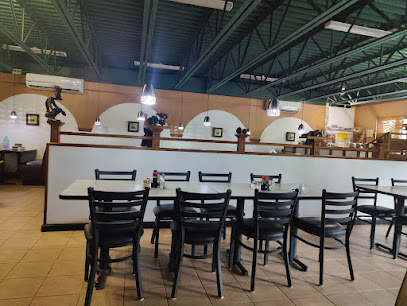
Sea Breeze Hotel
Discover comfort and delicious buffet dining at Sea Breeze Hotel in Kolonia, Pohnpei – your gateway to tropical adventures.
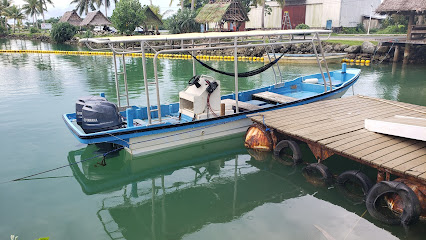
Town's Diner
Discover the delightful flavors of Pohnpei at Town's Diner - where local cuisine meets cozy dining.
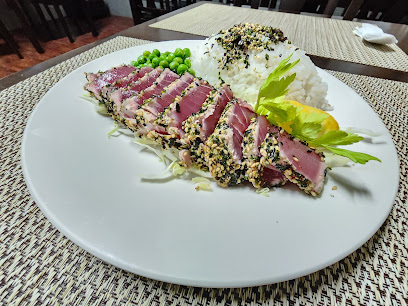
Fusion Restaurant
Discover the vibrant culinary scene at Fusion Restaurant in Kolonia, Pohnpei - where local flavors meet international cuisine.
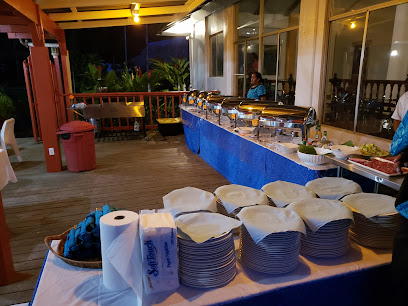
Hideaway Bar & Grill
Discover delicious local flavors at Hideaway Bar & Grill in Pohnpei - where culinary tradition meets modern dining.
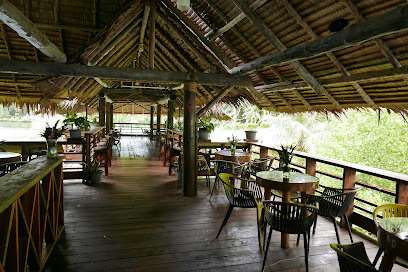
Nett Ramen
Discover authentic Japanese ramen at Nett Ramen in Pohnpei - where every bowl tells a story of tradition and flavor.
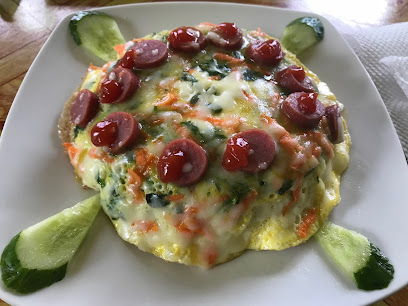
Cupid's Bar and Grille
Experience authentic Pohnpeian cuisine at Cupid's Bar and Grille, where local flavors meet warm hospitality in a serene setting.
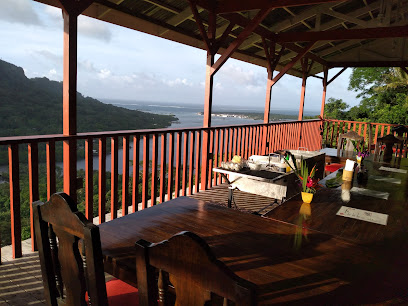
Markets, malls and hidden boutiques
A-One Mart, Kolonia
Experience the vibrant shopping culture at A-One Mart in Kolonia, where local produce meets everyday essentials in a welcoming atmosphere.
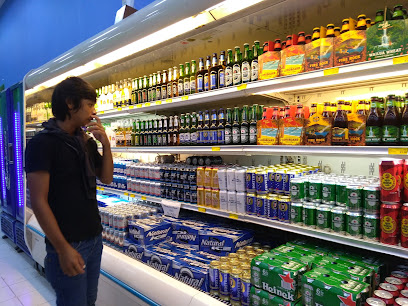
Palm Terrace Market
Explore the vibrant Palm Terrace Market in Kolonia, where local produce and Pohnpei's culinary delights await your discovery.
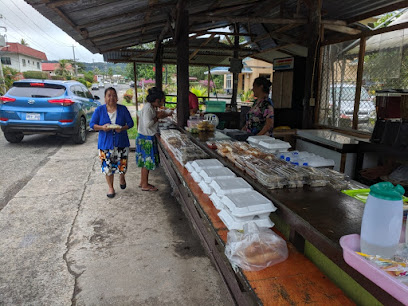
Isamu Nakasone Store (INS)
Experience the charm of Isamu Nakasone Store in Kolonia, where local flavors and friendly faces await every visitor.
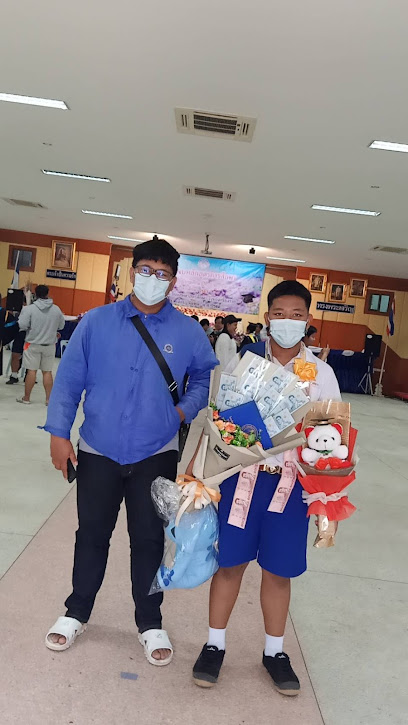
Blue Nile
Explore a vibrant grocery store in Kolonia, Pohnpei, featuring local and imported goods perfect for every traveler’s needs.
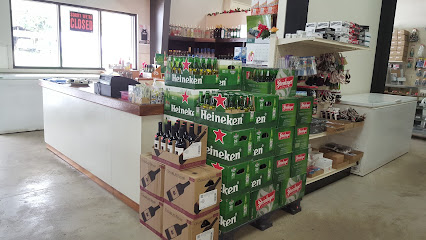
Seven Eleven
Discover convenience and local flavors at Seven Eleven in Palikir, Pohnpei – your ultimate stop for snacks and essentials.

4 R's Mini Mart Store
Discover local treasures and flavors at 4 R's Mini Mart Store in Pohnpei, your essential stop for shopping and cultural experience.
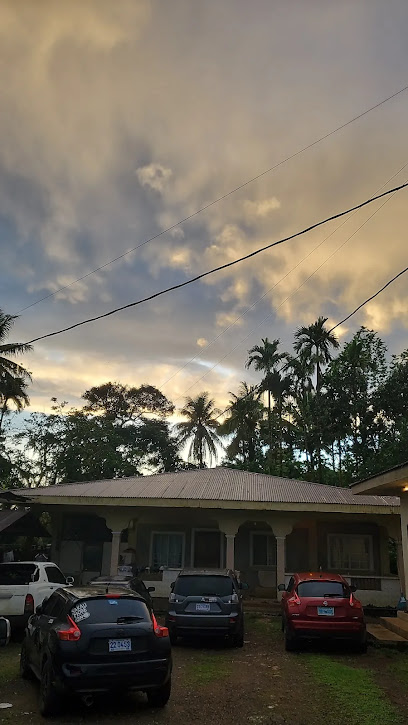
En's 7 Stars Store
Discover local goods and everyday essentials at En's 7 Stars Store in Kolonia, Pohnpei, where island culture comes to life.
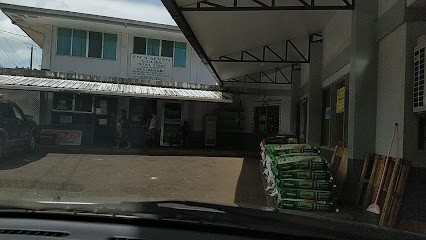
Ray & Dor's
Experience the local charm and essential goods at Ray & Dor's, Kolonia's beloved general store offering a taste of Pohnpei's culture.

J & D Store
Explore J & D Store in Kolonia for unique home goods and authentic Pohnpei craftsmanship, making it a must-visit for every tourist.
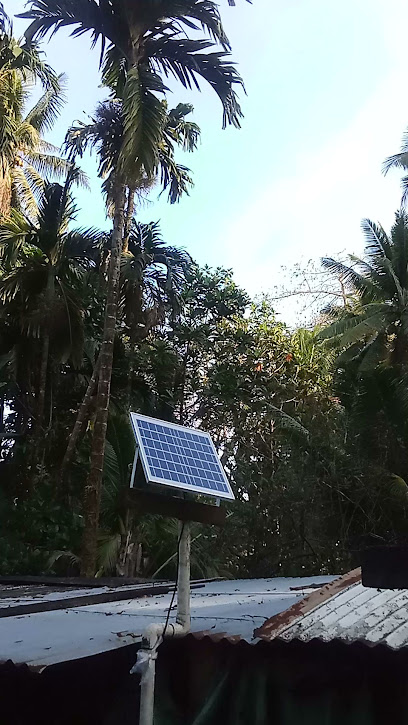
Mimi's Closet
Discover unique fashion and local designs at Mimi's Closet in Kolonia, Pohnpei - a must-visit destination for style-savvy travelers.
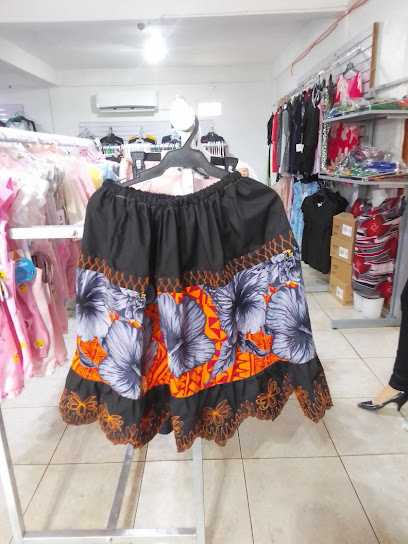
Nihco Store
Explore the essence of Pohnpei through unique local crafts and authentic island treasures at Nihco Store in Kolonia.

Woodcraft
Explore Woodcraft, the premier gift shop in Pohnrakied, where local artistry meets unique treasures for the perfect memento of Pohnpei.
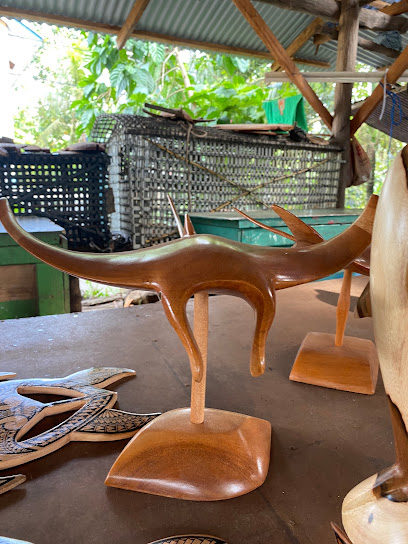
RUSH HOUR STORE AND BAKERY
Discover the essence of Pohnpei through local ingredients and delicious baked goods at RUSH HOUR STORE AND BAKERY in Kolonia.
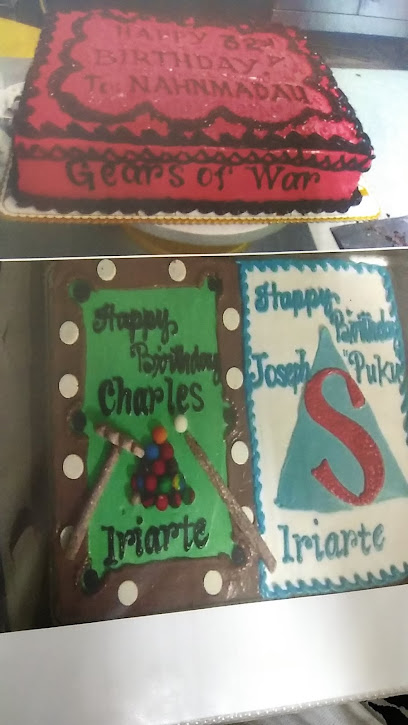
Panuelo Store
Explore the vibrant Panuelo Store in Kolonia, Pohnpei, where local culture and unique treasures come together for an unforgettable shopping experience.

JADESA
Explore Pohnpei's cultural treasures at JADESA, your go-to gift shop for unique souvenirs, organic products, and local craftsmanship.
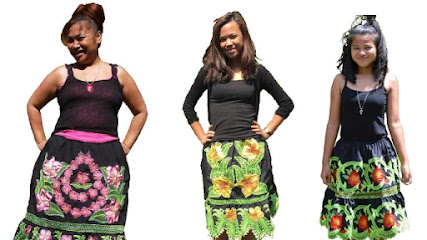
Essential bars & hidden hideouts
Joy Hotel & Restaurant
Experience the Best of Japanese Cuisine and Local Flavors at Joy Hotel & Restaurant in Kolonia, Pohnpei.

Chinastar Hotel & Restaurant
Experience the best of Pohnpei at Chinastar Hotel & Restaurant, where authentic Chinese cuisine meets local hospitality.

7 Stars Inn & Riverside Restaurant
Experience the perfect blend of comfort and local flavors at 7 Stars Inn & Riverside Restaurant in Kolonia, Pohnpei Island.

Mangrove Bay Bar
Experience the vibrant nightlife and delicious flavors at Mangrove Bay Bar, a must-visit destination in Kolonia, Pohnpei, for every traveler.
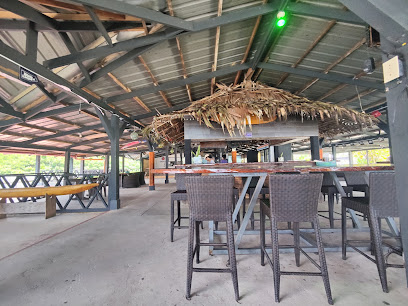
Ocean View Plaza Hotel
Discover tranquility and local flavors at Ocean View Plaza Hotel, your perfect retreat in Pohnpei Island with stunning ocean views.
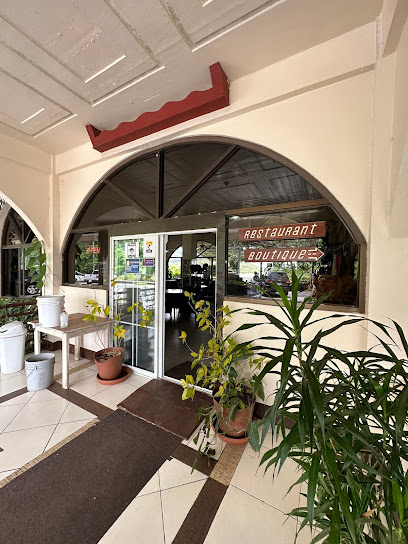
Arnold's
Discover the flavors of Kolonia at Arnold's, a charming restaurant and café offering local and international cuisine in a cozy setting.
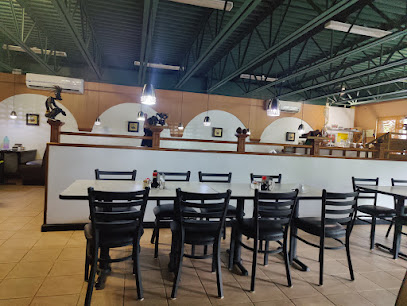
Sea Breeze Hotel
Experience the best of Pohnpei at Sea Breeze Hotel, where exquisite dining meets stunning ocean views in Kolonia.
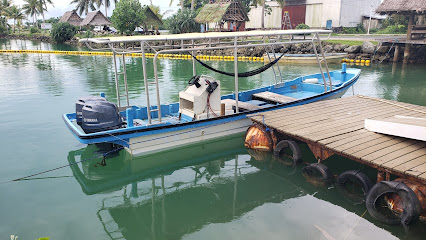
Town's Diner
Experience authentic Pohnpeian cuisine in a cozy atmosphere at Town's Diner in Kolonia, Pohnpei.
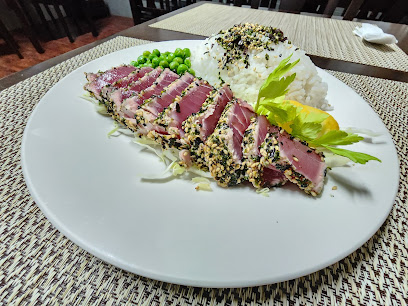
Hideaway Bar & Grill
Experience the rich flavors of Pohnpei at Hideaway Bar & Grill, where local cuisine meets a welcoming atmosphere for tourists.
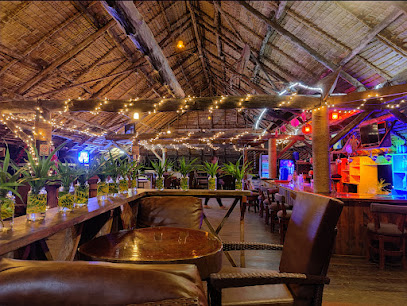
Nett Ramen
Discover the exquisite flavors of authentic Japanese ramen in the heart of Pohnpei at Nett Ramen, a culinary haven for travelers.
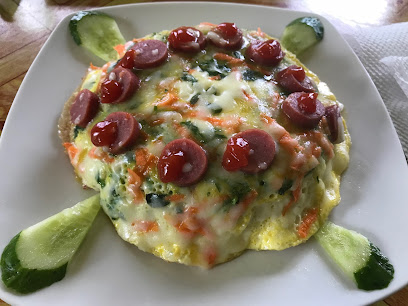
Cupid's Bar and Grille
Experience the flavors of Pohnpei at Cupid's Bar and Grille, where local cuisine meets international flair in a cozy setting.
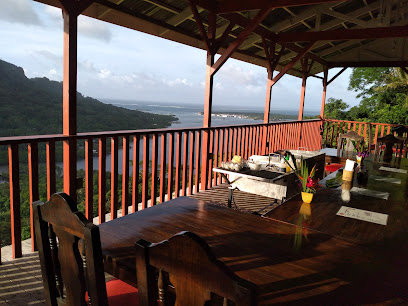
Coco Marina Club
Discover the vibrant spirit of Pohnpei at Coco Marina Club, where ocean views, refreshing drinks, and local flavors come together.
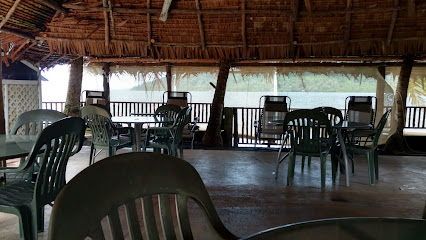
Hide-away Hotel
Discover the serene beauty and warm hospitality of Hide-away Hotel, your perfect retreat in Pohnpei's lush landscapes.
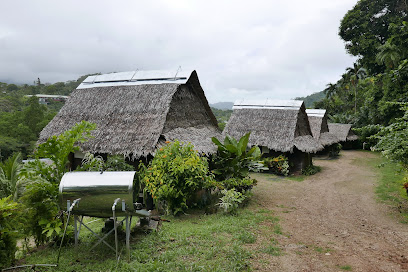
PCR / Nantehlik Restaurant / Mummy's Club
Discover the vibrant fusion of buffet dining and nightlife at PCR / Nantehlik Restaurant / Mummy's Club in Kolonia, Pohnpei.
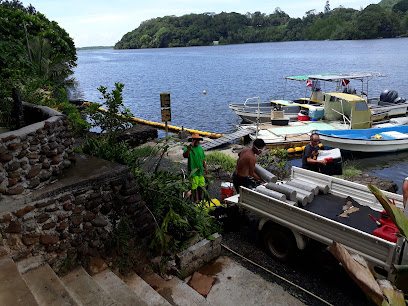
Wills and Joe’s Bar and Grill
Discover the vibrant atmosphere and local flavors at Wills and Joe’s Bar and Grill on Pohnpei Island, a tropical paradise for food and drink lovers.

Local Phrases
-
- HelloKaselehlia
[kah-seh-leh-lee-ah] - GoodbyeKalahngan
[kah-lahng-gahn] - YesOor
[ohr] - NoUwe
[oo-weh] - Please/You're welcomeKulo
[koo-loh] - Thank youKinisou
[kee-nee-soo] - Excuse me/SorryKilisou
[kee-lee-soo] - How are you?Kaselehlia?
[kah-seh-leh-lee-ah] - Fine. And you?Kalahngan. Kahngan me ook?
[kah-lahng-gahn. kahng-gahn meh ohk] - Do you speak English?Ewe oungesea English?
[eh-weh oh-uhn-geh-seh-ah English] - I don't understandOor kasangkinei
[ohr kah-sahng-kee-nay]
- HelloKaselehlia
-
- I'd like to see the menu, pleaseOor kasangkinei menu, kulo
[ohr kah-sahng-kee-nay menu, koo-loh] - I don't eat meatOor kasangkinei won pwal
[ohr kah-sahng-kee-nay wohn pwahl] - Cheers!Mwahng!
[mwahng] - I would like to pay, pleaseOor kasangkinei kilang, kulo
[ohr kah-sahng-kee-nay kee-lahng, koo-loh]
- I'd like to see the menu, pleaseOor kasangkinei menu, kulo
-
- Help!Kalahngan!
[kah-lahng-gahn] - Go away!Eri elap!
[eh-ree eh-lahp] - Call the Police!Ewe mwe ngori Police!
[eh-weh mwuh n-goh-ree Police] - Call a doctor!Ewe mwe ngori doctor!
[eh-weh mwuh n-goh-ree doctor] - I'm lostOor kinangang
[ohr kee-nahng-ahng] - I'm illOor kinangang
[ohr kee-nahng-ahng]
- Help!Kalahngan!
-
- I'd like to buy...Oor kasangkinei kinoung
[ohr kah-sahng-kee-nay kee-noh-uhng] - I'm just lookingOor kasangkinei pwungaw
[ohr kah-sahng-kee-nay poo-wuhng-ahw] - How much is it?Seik
[sayk] - That's too expensiveMwetei tori
[mwuh-tay toh-ree] - Can you lower the price?Ewe mwe eni mwo?
[eh-weh mwuh eh-nee mwuh]
- I'd like to buy...Oor kasangkinei kinoung
-
- What time is it?Seilong nting
[say-lawng nteeng] - It's one o'clockNtingi amwan
[ntee-ng ee ahm-wahn] - Half past (10)Ntingi kohsou (10)
[ntee-ng ee koh-soo (10)] - MorningMwahng
[mwahng] - AfternoonKilang
[kee-lahng] - EveningNtingi ening
[ntee-ng ee-ning] - YesterdayNtingi kowahla
[ntee-ng ee koh-wah-lah] - TodayNtingi aramas
[ntee-ng ee ah-rah-mahs] - TomorrowNtingi kapinga
[ntee-ng ee kah-peen-gah] - 1Amwan
[ahm-wahn] - 2Kosou
[koh-soo] - 3Kolohsou
[koh-loh-soo] - 4Amwahu
[ahm-wah-hoo] - 5Ngidol
[ng-ee-dohl] - 6Ngonou
[ng-oh-noh] - 7Amwaluk
[ahm-wah-luhk] - 8Kosouluh
[koh-soo-luh] - 9Kolohsouluh
[koh-loh-soo-luh] - 10Amwahuwah
[ahm-wah-hoo-wah]
- What time is it?Seilong nting
-
- Where's a/the...?Ewe ndahng?
[eh-weh ndah-ng] - What's the address?Ewe ntingi aras?
[eh-weh nteeng ee ah-rahss] - Can you show me (on the map)?Ewe mwe ntingi kilang (pwe kohsou)?
[eh-weh mwuh nteeng ee kee-lahng (pweh koh-soo)] - When's the next (bus)?Seilong ntingi ngori (bus)?
[say-lawng nteeng ee n-goh-ree bus] - A ticket (to ....)Ntingi kilang (to ....)
[ntee-ng ee kee-lahng (to ....)]
- Where's a/the...?Ewe ndahng?
History of Kolonia
-
Kolonia, located on the island of Pohnpei, has a rich history that dates back to ancient times. Archaeological evidence suggests that the island was settled as early as 2,000 years ago. The early inhabitants constructed impressive megalithic structures, including the famous Nan Madol site, which served as a ceremonial and political center.
-
In the 16th century, Spanish explorers arrived in the Caroline Islands, including Pohnpei. Kolonia was established as a colonial outpost in the 1880s. The Spanish influence can still be seen in some of the architectural remnants and place names in the area.
-
Following the Spanish-American War, Spain sold its Micronesian territories to Germany in 1899. Under German rule, Kolonia became the administrative center of the island. The Germans introduced new agricultural practices and infrastructure improvements, which had a lasting impact on the local economy and development.
-
During World War I, Japan took control of Pohnpei and other Micronesian islands from Germany. Kolonia became an important hub for the Japanese administration, and the town saw significant development during this period, including the construction of schools, roads, and other infrastructure.
-
World War II brought significant changes to Kolonia. The island was heavily bombed by Allied forces, and many of the Japanese structures were destroyed. After the war, Pohnpei, including Kolonia, came under American administration as part of the Trust Territory of the Pacific Islands. The U.S. influence led to further development and modernization of the town.
-
In 1986, the Federated States of Micronesia, including Pohnpei and Kolonia, gained independence through the Compact of Free Association with the United States. Kolonia has since grown as the capital of Pohnpei State, blending traditional Micronesian culture with modern influences. Today, it serves as a vibrant center for government, commerce, and culture in the region.
Kolonia Essentials
-
Kolonia, located on Pohnpei Island in the Federated States of Micronesia, is accessible primarily by air. The main entry point is Pohnpei International Airport (PNI), which receives flights from major hubs such as Guam and Honolulu. United Airlines operates regular flights to Pohnpei. Once you arrive at the airport, Kolonia is just a short taxi ride away.
-
Kolonia is a small town, making it easy to navigate on foot. For longer distances, taxis are readily available and reasonably priced. Car rentals are also an option for those who prefer to explore at their own pace. Public transport is limited, but local buses do operate on main routes. For water travel, local boats and ferries can take you to nearby islands.
-
The official currency is the United States Dollar (USD). Credit cards are accepted in some hotels, restaurants, and shops, but cash is still the most common form of payment. ATMs are available in Kolonia, but it is advisable to carry sufficient cash, especially when traveling to more remote areas.
-
Kolonia is generally safe for tourists, but it is always wise to take standard precautions. Avoid walking alone at night in unfamiliar areas and keep an eye on your belongings in crowded places. There are no specific high-crime areas targeting tourists, but staying vigilant is always recommended.
-
In case of emergency, dial 911 for immediate assistance. The local police station and medical facilities are available in Kolonia. It is recommended to have travel insurance that covers medical emergencies. For minor health issues, there are pharmacies in the town where you can purchase over-the-counter medications.
-
Fashion: Do dress modestly, especially when visiting religious sites. Avoid wearing revealing clothing. Religion: Do respect local customs and traditions. Always cover your head when entering churches and religious buildings. Public Transport: Do be respectful and give up your seat to elderly passengers. Don't eat or drink on public transport. Greetings: Do greet people with a handshake. A slight bow of the head is also a sign of respect. Eating & Drinking: Do try local delicacies and accept food offerings graciously. Don't refuse hospitality, as it is considered impolite.
-
To experience Kolonia like a local, visit the local markets where you can buy fresh produce and traditional Micronesian goods. Engage with locals, as they are often friendly and willing to share stories about the town's history and culture. Don't miss visiting historical sites like the Spanish Wall and the Nan Madol ruins. For a unique experience, take a boat trip to the nearby atolls and enjoy snorkeling in the pristine waters.
Trending Landmark in Kolonia
-
Nan Madol
-
Cliff Hotel & Restaurant
-
Joy Hotel & Restaurant
-
Kosrae Nautilus Resort
-
Kepirohi Waterfall
-
Pohnpei International Airport
-
7 Stars Inn & Riverside Restaurant
-
Mangrove Bay Hotel
-
Ocean View Plaza Hotel
-
Pohnpei Surf and Dive Club
-
Sea Breeze Hotel
-
Yvonne's Hotel
-
Lelu Ruins Historic Park
-
Sokehs Rock
-
鰻魚池
Nearby Cities to Kolonia
-
Things To Do in Pohnpei
-
Things To Do in Nan Madol
-
Things To Do in Kosrae
-
Things To Do in Weno
-
Things To Do in Chuuk
-
Things To Do in Denigomodu
-
Things To Do in Aiwo
-
Things To Do in Uaboe
-
Things To Do in Boe
-
Things To Do in Buada
-
Things To Do in Anabar
-
Things To Do in Ijuw
-
Things To Do in Anibare
-
Things To Do in Yaren
-
Things To Do in Kavieng






